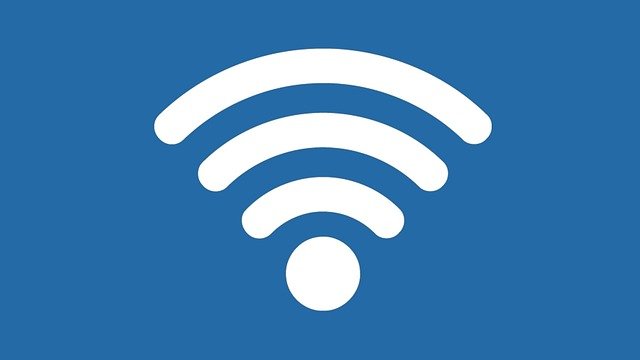The Neuroscience of Career Success: Rewiring for Achievement
In the ever-evolving landscape of professional development, a groundbreaking approach is emerging that combines cutting-edge neuroscience with career strategy. This innovative method, rooted in our understanding of brain plasticity and cognitive function, offers a fresh perspective on how individuals can optimize their career trajectories. By harnessing the power of neuroscience, professionals are discovering new ways to enhance their skills, decision-making abilities, and overall career satisfaction.

The Neural Foundations of Career Development
The human brain, with its intricate network of neurons and synapses, forms the biological basis for all our thoughts, decisions, and actions. In the context of career development, understanding how our brains function can provide invaluable insights into optimizing our professional lives. Neuroscientific research has revealed that the brain’s plasticity—its ability to form new neural connections throughout life—plays a crucial role in learning, adapting to new environments, and developing new skills.
This plasticity is particularly relevant in today’s rapidly changing job market, where the ability to learn and adapt quickly is often more valuable than static knowledge. By leveraging our understanding of neuroplasticity, individuals can actively shape their brain’s structure and function to better align with their career goals. This might involve practices such as targeted skill acquisition, mindfulness techniques to enhance focus, or cognitive exercises to improve problem-solving abilities.
Neurochemistry and Professional Motivation
The role of neurochemicals in shaping our behavior and emotions has significant implications for career success. Dopamine, often called the reward neurotransmitter, plays a crucial role in motivation and goal-directed behavior. Understanding how to naturally boost dopamine levels through achievement and recognition can help professionals maintain high levels of engagement and productivity in their work.
Similarly, serotonin, which influences mood and social behavior, can be modulated through practices that enhance workplace relationships and personal well-being. By creating environments and habits that promote the balanced release of these neurochemicals, individuals can cultivate a more positive, resilient, and productive professional mindset.
Cognitive Biases and Decision-Making in Career Choices
Our brains are wired with numerous cognitive biases that can significantly impact our career decisions. Recognizing and navigating these biases is crucial for making sound professional choices. For instance, the confirmation bias might lead us to seek information that only supports our preexisting beliefs about a particular career path, potentially blinding us to important alternative opportunities or realities.
By understanding these cognitive tendencies, professionals can implement strategies to counteract their effects. This might involve seeking diverse perspectives before making major career decisions, regularly challenging one’s assumptions, or using structured decision-making frameworks that encourage objective analysis. Neuroscience-informed approaches to decision-making can lead to more balanced, informed choices that align better with long-term career goals and personal values.
Stress Management and Cognitive Performance
Chronic stress can have detrimental effects on brain function, impacting memory, decision-making, and overall cognitive performance. In the high-pressure environment of modern careers, effective stress management is not just a matter of well-being but a critical factor in professional success. Neuroscience offers insights into how stress affects the brain and provides evidence-based strategies for mitigating its negative impacts.
Techniques such as mindfulness meditation, regular exercise, and adequate sleep have been shown to reduce stress levels and improve cognitive function. These practices can lead to increased gray matter in brain regions associated with emotional regulation and executive function, enhancing resilience and performance in challenging work environments. By incorporating these neuroscience-backed strategies into their daily routines, professionals can maintain optimal brain health and cognitive performance, even in high-stress career situations.
Enhancing Learning and Skill Acquisition
The ability to quickly acquire new skills and knowledge is increasingly vital in today’s fast-paced job market. Neuroscience research has uncovered numerous strategies to enhance learning and memory consolidation. Techniques such as spaced repetition, where information is reviewed at increasingly longer intervals, have been shown to significantly improve long-term retention of new information.
Additionally, the concept of neurogenesis—the formation of new neurons in the adult brain—offers exciting possibilities for enhancing cognitive capabilities throughout one’s career. Activities that promote neurogenesis, such as aerobic exercise and engaging in novel, challenging experiences, can boost learning capacity and cognitive flexibility. By incorporating these neuroscience-informed learning strategies, professionals can accelerate their skill development and maintain cognitive agility throughout their careers.
The Future of Neuroscience in Career Development
As our understanding of the brain continues to advance, the potential applications of neuroscience in career development are expanding rapidly. Emerging technologies such as neurofeedback and brain-computer interfaces hold promise for enhancing cognitive abilities and optimizing performance in ways previously thought impossible. While these technologies are still in their infancy, they point to a future where career development strategies may be tailored to individual brain patterns and cognitive strengths.
Moreover, the integration of neuroscience into organizational practices could lead to more brain-friendly work environments, optimized for productivity, creativity, and employee well-being. As research in this field progresses, we can expect to see a growing synergy between neuroscience and career development, offering professionals unprecedented tools and insights for achieving their career aspirations.






